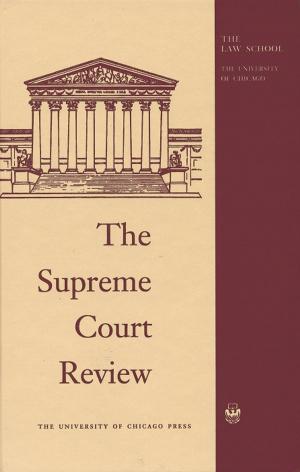Collective Memory and the Historical Past
Nonfiction, History, Reference, Historiography, Religion & Spirituality, Philosophy, Epistemology| Author: | Jeffrey Andrew Barash | ISBN: | 9780226399294 |
| Publisher: | University of Chicago Press | Publication: | November 25, 2016 |
| Imprint: | University of Chicago Press | Language: | English |
| Author: | Jeffrey Andrew Barash |
| ISBN: | 9780226399294 |
| Publisher: | University of Chicago Press |
| Publication: | November 25, 2016 |
| Imprint: | University of Chicago Press |
| Language: | English |
There is one critical way we honor great tragedies: by never forgetting. Collective remembrance is as old as human society itself, serving as an important source of social cohesion, yet as Jeffrey Andrew Barash shows in this book, it has served novel roles in a modern era otherwise characterized by discontinuity and dislocation. Drawing on recent theoretical explorations of collective memory, he elaborates an important new philosophical basis for it, one that unveils important limitations to its scope in relation to the historical past.
Crucial to Barash’s analysis is a look at the radical transformations that the symbolic configurations of collective memory have undergone with the rise of new technologies of mass communication. He provocatively demonstrates how such technologies’ capacity to simulate direct experience—especially via the image—actually makes more palpable collective memory’s limitations and the opacity of the historical past, which always lies beyond the reach of living memory. Thwarting skepticism, however, he eventually looks to literature—specifically writers such as Marcel Proust, Walter Scott, and W. G. Sebald—to uncover subtle nuances of temporality that might offer inconspicuous emblems of a past historical reality.
There is one critical way we honor great tragedies: by never forgetting. Collective remembrance is as old as human society itself, serving as an important source of social cohesion, yet as Jeffrey Andrew Barash shows in this book, it has served novel roles in a modern era otherwise characterized by discontinuity and dislocation. Drawing on recent theoretical explorations of collective memory, he elaborates an important new philosophical basis for it, one that unveils important limitations to its scope in relation to the historical past.
Crucial to Barash’s analysis is a look at the radical transformations that the symbolic configurations of collective memory have undergone with the rise of new technologies of mass communication. He provocatively demonstrates how such technologies’ capacity to simulate direct experience—especially via the image—actually makes more palpable collective memory’s limitations and the opacity of the historical past, which always lies beyond the reach of living memory. Thwarting skepticism, however, he eventually looks to literature—specifically writers such as Marcel Proust, Walter Scott, and W. G. Sebald—to uncover subtle nuances of temporality that might offer inconspicuous emblems of a past historical reality.















